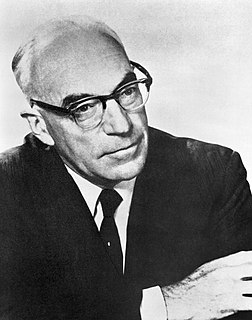A Quote by Mary Hunter Austin
Genius may be for an hour or a thousand years; its indispensable quality is continuity with the life-push.
Quote Topics
Related Quotes
The legislator is an indispensable guardian of our freedom. It is true that great executives have played a powerful role in the development of civilization, but such leaders appear sporadically, by chance. They do not always appear when they are most needed. The great executives have given inspiration and push to the advancement of human society, but it is the legislator who has given stability and continuity to that slow and painful progress.
Hitler knows that he will have to break us in this island or lose the war. If we can stand up to him, all Europe may be free, and life of the world may move forward into broad, sunlit uplands. But if we fall, then the whole world, including the United States, including all that we have known and cared for, will sink into the abyss of a new Dark Age... Let us therefore brace ourselves to our duties, and so bear ourselves that, if the British Empire and its Commonwealth last for a thousand years, men will still say, 'This was their finest hour.'
Genius is its own reward; for the best that one is, one must necessarily be for oneself. . . . Further, genius consists in the working of the free intellect., and as a consequence the productions of genius serve no useful purpose. The work of genius may be music, philosophy, painting, or poetry; it is nothing for use or profit. To be useless and unprofitable is one of the characteristics of genius; it is their patent of nobility.






































